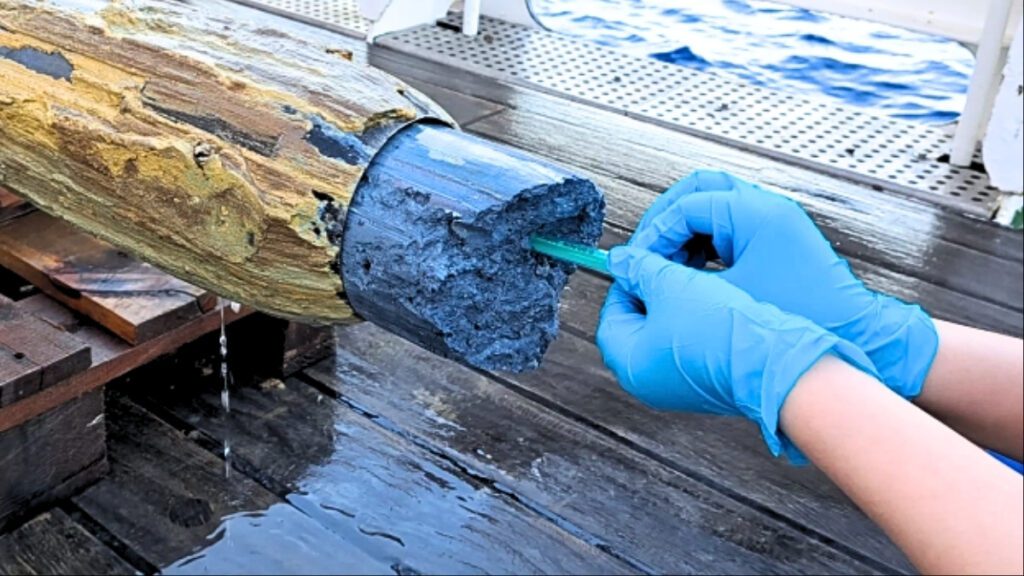Researchers have uncovered unexpected biological signatures in blue volcanic mud from a depth of about 3,000 meters near the Mariana Trench, which may offer insights into the origin of life. A sediment sample from the Pacman Volcano revealed high pH levels of 12, one of the highest recorded in a natural ecosystem, indicating harsh conditions that can cause skin burns. This environment hosts extremophiles, suggesting that primitive life could have originated in such extreme conditions.
Florence Schubots, an organic geochemist, emphasizes the importance of understanding these microorganisms’ habitats, which thrive despite low organic carbon and high alkalinity. The team, led by Palash Kumawat from the University of Bremen, analyzed mud volcanic deposits, discovering significant microbial life within the serpentinite formations. They found fats in bacterial and archaeal cell membranes, indicating diverse microbial communities adapted to high pH environments.
The findings also highlight the role of serpentinite in supporting chemosynthetic organisms, which derive energy from methane and sulfates. The research confirmed the presence of methane-producing microorganisms in this ecosystem. With around 15 percent of Earth’s biomass thought to reside beneath the ocean floor, this study underscores the need for further exploration of extremophiles to better understand the origins and sustenance of life on Earth. The findings are detailed in the journal Communications Earth & Environmental.


